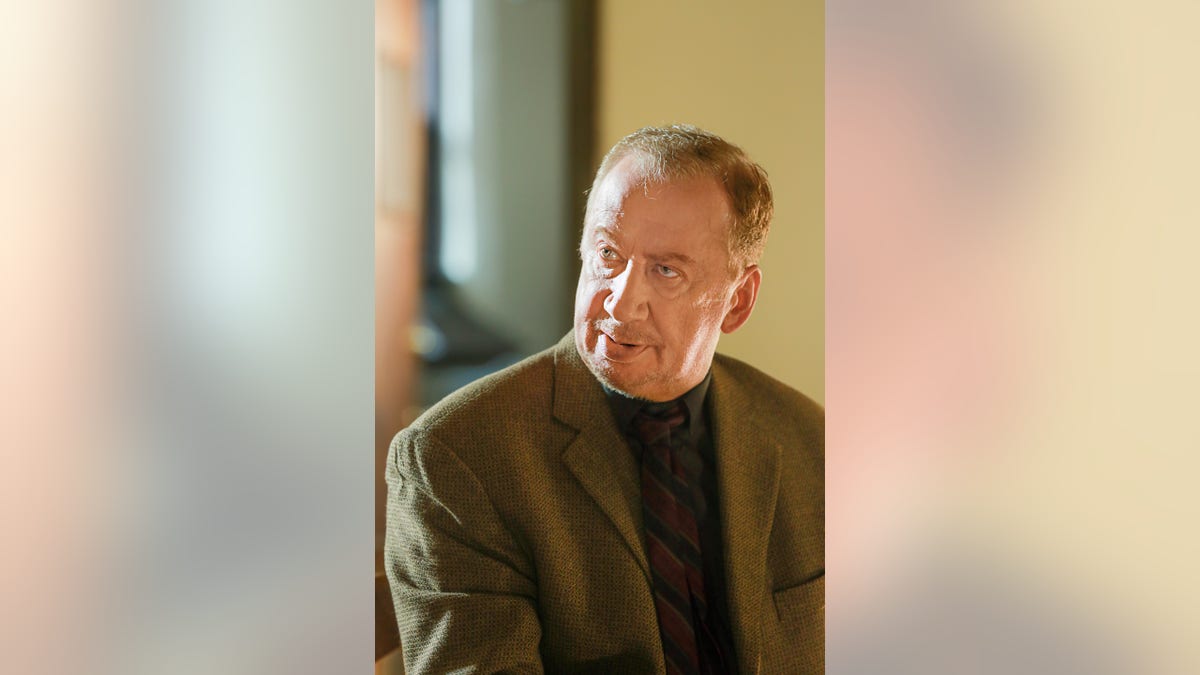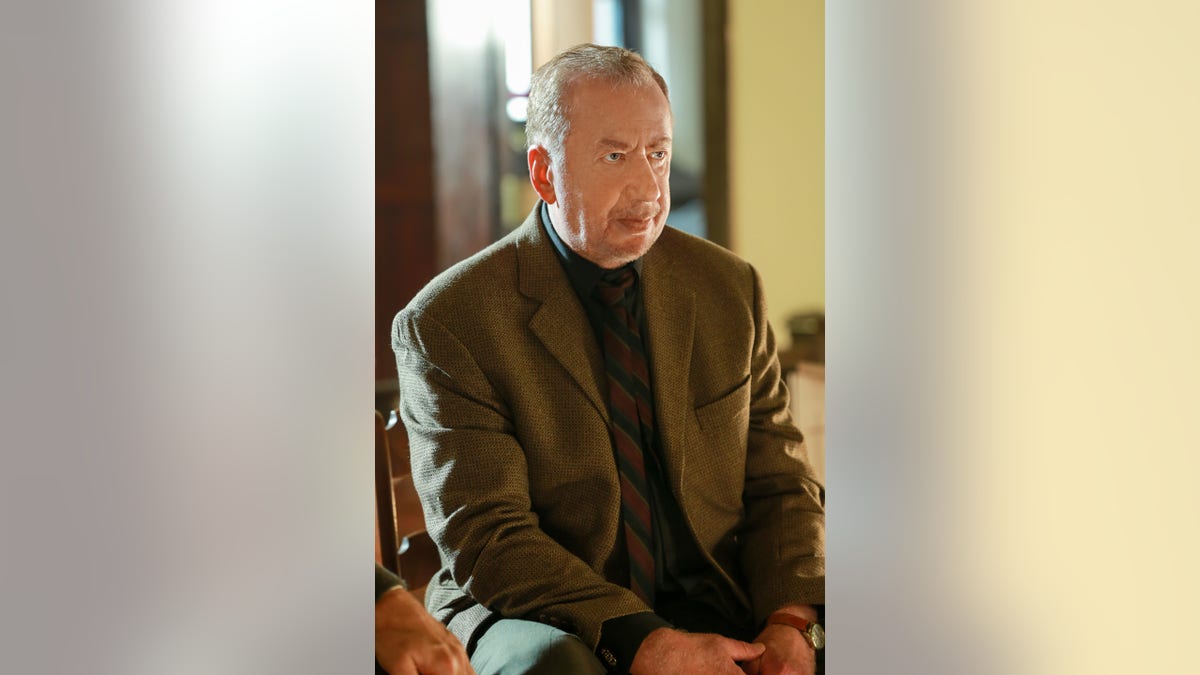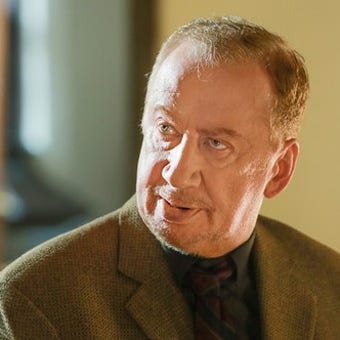Fox News Flash top headlines for September 28
Fox News Flash top headlines are here. Check out what's clicking on Foxnews.com.
I’m an actor. For more than 40 years, I've been living and working in Hollywood. Everybody knows how much actors love applause, and I'm no exception. Usually, the audience applauds actors at the end of a performance, or sometimes in the middle of the play after a great scene or a monologue. These moments are precious.
But I once received a standing ovation when I least expected it: When I met a group of active fellow filmmakers to exchange ideas, lay out grievances and talk about all kinds of things that were happening in the world. I was asked to introduce myself, and trying to keep it short, I told them that I was born in the Soviet Union, and that after graduating from one of the prestigious theater colleges in Moscow, I worked as an actor for about five years before immigrating to the U.S. in 1976. A few months after my arrival, I got my first break in Hollywood, and since then I have appeared in more than 100 movies and TV shows.
One of the attendees asked me what surprised me the most about America. I told him the following: in the Soviet Union, people were forced to praise the government and despise the capitalist West. If, God forbid, you revealed in a conversation that you loved America, this somebody could report you to the authorities and you could get into serious trouble. Yet, in America, I told the group, to my astonishment, I quickly learned that revealing that I love America could also get me in trouble! And that’s when everybody got up and gave me an unexpected and big round of applause.
CALLING SOMEONE 'WOKE' IS AS BAD AS USING A 'RACIAL SLUR,' ACTRESS SAYS: IT'S 'DEEPLY OFFENSIVE'
When I was offered a role in a picture called "Reagan," I read the script and knew right away that I had to play this role. You see, the role I was asked to play was that of a Soviet citizen by the name of B.E. Kertchman, who, in the 1920s defected to the United States.

Elya Baskin saw what the old Soviet Union was like. Now he's warning about how Marxism is creeping into American life.
It was a couple of decades later that several prominent American and Western European writers, such as John Steinbeck, George Bernard Shaw, and H.G. Wells, had been invited by then-Soviet premier Joseph Stalin to visit the Soviet Union. They were treated like royalty during their visits and naturally – loved it. Upon their return home they began to publish articles in major Western newspapers glorifying the Soviet system, telling their readers about the wonderful and happy lives of ordinary citizens in the "workers’ paradise."
Of course, these naive distinguished westerners had no clue about how ordinary people lived. Stalin had shown them only the artfully staged parts of life in the USSR and had permitted them to interact only with specially trained staff. While in Moscow, they were closely watched and not allowed to deviate even slightly from their pre-planned route.
If they had witnessed the true conditions under which my compatriots lived, they would have had nightmares. Millions of people were dying of hunger, sent to labor camps or brutally executed for being disloyal to the regime.
Some people, having believed what they read in deceitful news reports, emigrated from their home countries to the Soviet Union, hoping to find happiness in the so-called Socialist Paradise. Most of them soon realized they had been fooled and tried to come back. Very few managed to leave. And when those who were lucky enough to come back tried to share their horror stories about life in the USSR, very few people at home believed them. After all, who is more believable – a collection of famous writers or some regular Joe?
My character, Kertchman, managed to escape the USSR and traveled around the U.S. giving speeches, trying to enlighten Americans about the real life in his home country and about the lies they had been fed by the Soviets with the assistance of easily manipulated westerners. Quite often, Kertchman was met with skepticism, but one who was not skeptical was a young preacher in the small town of Dixon, Illinois, named Ben Cleaver who invited him to speak at his church – the home church of a 17-year-old named Ronald Reagan.
During Stalin's rule, fear was the primary tool used by the government to keep the Soviet population obedient and under control. But strangely enough, even after Stalin was long gone, very little changed in the Soviet Union. This fear had already been ingrained permanently into peoples’ DNA and would remain there for generations. But by the time I was a teenager, most people no longer believed in the lies and propaganda of the State.
The government lied about its achievements, professors and journalists – about the supposed decadence and decay in capitalist countries. Government officials knew they were lying, but nevertheless, they continued to lie and pretend that everything was wonderful. Everyone knew it wasn't. When the foundation of any government is based on lies, it is destined to fail sooner or later. As we all now know, that’s exactly what happened to the Soviet Union. It simply collapsed.
When I came to America 45 years ago, I thought that I had landed in paradise. People I met were friendly and generous, and the abundance of goods was mind-blowing. In the Soviet Union, I had to spend hours in lines to buy simple things like toilet paper and I could not speak openly about ideas that were not state approved.

Elya Baskin has a role in "Reagan" playing Kertchman who goes around the U.S. warning about the Soviet Union. One of those who hears him lecture is a 17-year-old named Ronald Reagan.
In America, I could openly express my opinions on everything without fear of being prosecuted. But the most important thing was that my future life no longer depended on the Government or anybody else. I alone was responsible for my happiness. I was the architect of my own destiny.
I always assumed that it would stay like that in America forever. Unfortunately, I was wrong. This new country that I cherished deeply began to change. I started to notice Marxist ideology – discredited countless times around the world – slowly creeping in into different aspects of our lives. Traditional moral values were being overturned and using simple common sense was becoming anathema to the intellectual elite.
Today, just as in the Soviet Union, I have to hide my true feelings and am afraid to express them openly. Those basking in their subjective opinion of what is politically and socially correct just now control what I'm allowed to say and will soon dictate what I am permitted to think.
CLICK HERE FOR MORE FOX NEWS OPINION
My late friend, Yuri Bezmenov, was an ex-KGB officer, who in the early 1970s defected to the West. In the KGB, he worked in the communications department, which handled interactions with the foreign press. He knew firsthand all the methods of psychological coercion and indoctrination his organization used against the free world.
My character, Kertchman, managed to escape the USSR and traveled around the U.S. giving speeches, trying to enlighten Americans about the real life in his home country and about the lies they had been fed by the Soviets with the assistance of easily manipulated westerners. Quite often, Kertchman was met with skepticism, but one who was not skeptical was a young preacher in the small town of Dixon, Illinois, named Ben Cleaver who invited him to speak at his church – the home church of a 17-year-old named Ronald Reagan.
Like my character Kertchman, Yuri traveled across the United States giving lectures and trying to educate his audiences about the dangers of communism and how methodically and persistently this ideology penetrates Western society. And like Kertchman in the 1930s, he was met with great skepticism by many of his listeners who wouldn’t heed his warnings.
Both Bezmenov and Kertchman have been dead for many years, but their warnings live on and are especially relevant today as many young Americans seem enamored with Marxist ideas.
CLICK HERE TO GET THE FOX NEWS APP
Reagan often repeated the phrase "freedom is never more than one generation away from extinction." I believe he got that idea from men like Bezmenov and my character Kertchman, one that I too echo; it comes from the hearts of those of us who actually lived in such a system and find it our duty to report back to you so that you will avoid the mistakes our countrymen made.
And like one other great thinker once said: "Only a fool learns from his own mistakes. The wise man learns from the mistakes of others." To our fellow Americans we can only warn: "freedom is very fragile; take good care of it, or you may lose it."


